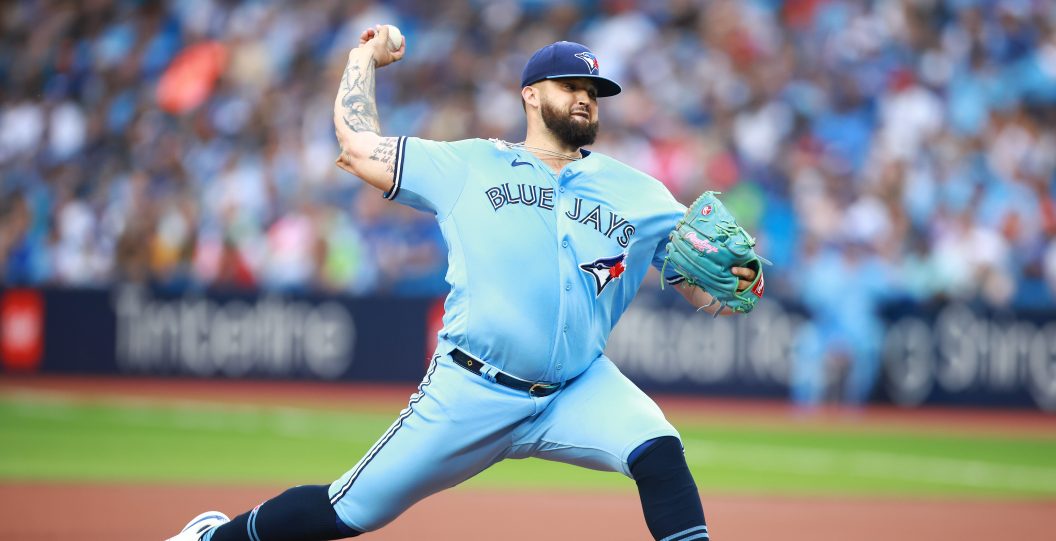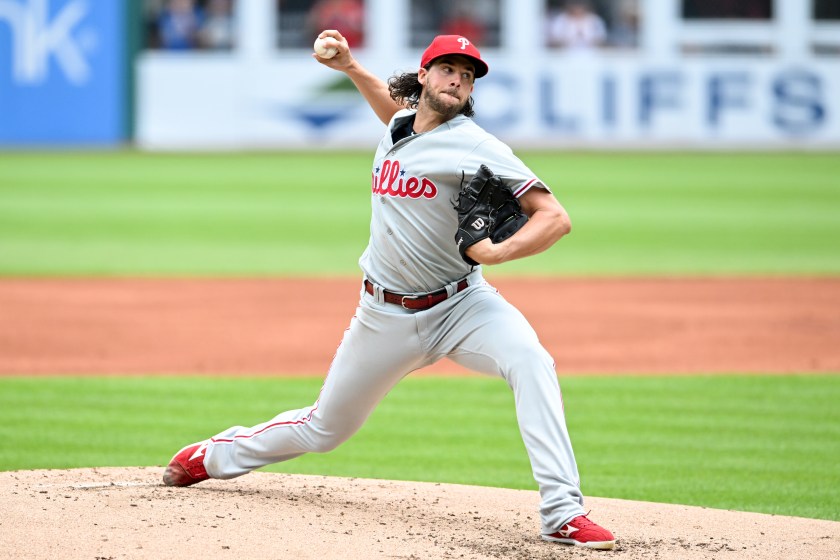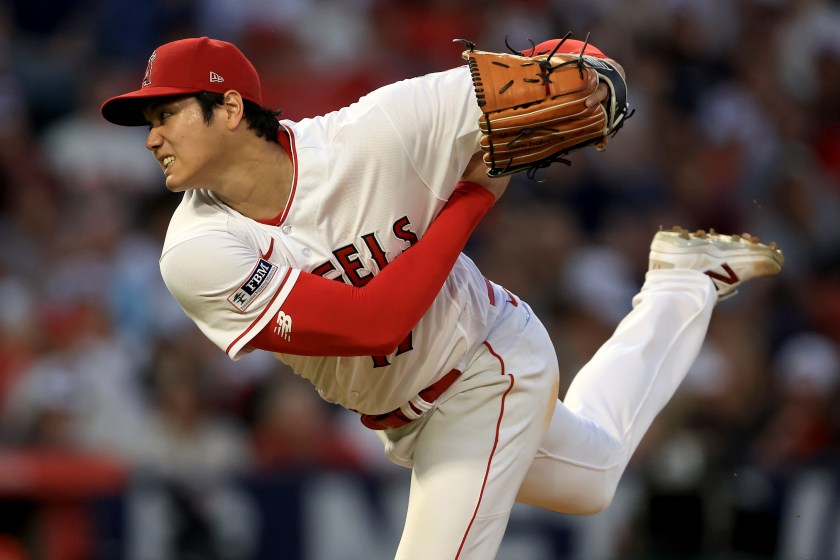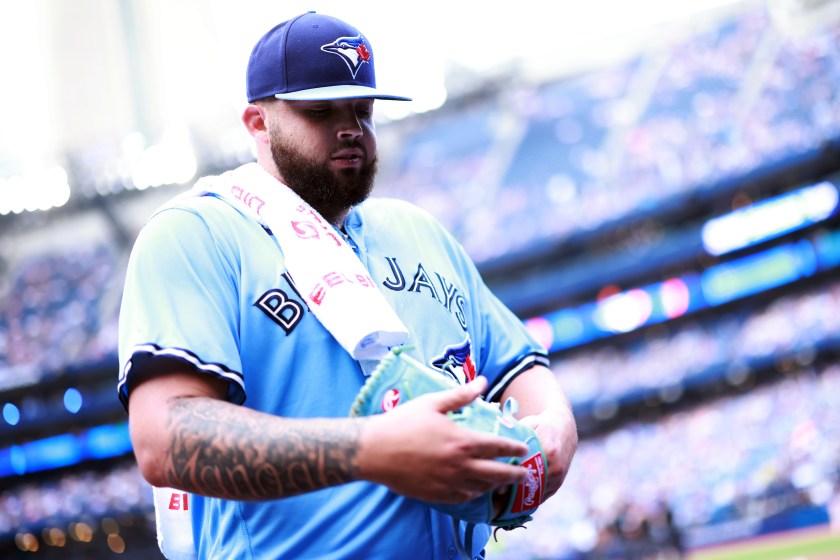In an interview with Fox & Friends in February, former Major League Baseball pitcher Curt Schilling weighed in on the changes that MLB was implementing this season, including the pitch clock.
Videos by FanBuzz
"Let's be very clear, the only pitchers that will be affected by the pitch clock are pitchers that suck," Schilling said. "Good pitchers never, never will be affected by the clock because good pitchers always work fast."
Do the number bear out Schilling's analysis? Do the best pitchers always work quickly? And will they continue to be successful when their quickness is actually mandated and not simply a product of the pitcher being in rhythm?
How Slow Were Pitchers Throwing?
First, consider the history. For that, we looked at Statcast's measure of Pitch Tempo, which tracks the median time between pitches from the release of one pitch to the release of the next; this only accounts for pitches that follow a taken ball or strike, and do not start a new at-bat.
Baseball Savant makes sure to clarify that this is not the same measure as the new MLB pitch timer, which measures time between the pitcher receiving the ball back from the catcher and when they start their next delivery. But it is an indicator of who works quickly and who takes their time within the allotted rules.
For a frame of reference, the fastest qualified pitcher in 2022 was Brent Suter of the Milwaukee Brewers, a middle reliever who took just 12.6 seconds between pitches. Giovanny Gallegos of the St. Louis Cardinals and Jonathan Loaisiga of the New York Yankees were the slowest, taking 25.8 seconds per pitch. Among the bottom 50 — nearly all relievers — are studs such as Devin Williams, Josh Hader, Craig Kimbrel and Kenley Jansen. These numbers are all with the bases empty.
Schilling is ostensibly talking about starters, we would surmise, and it's informative to see how quickly the best starting pitchers worked in 2022. Let's look at the top four Cy Young vote-getters from each league last season. This is out of 390 qualified pitchers.
National League:
Sandy Alcantara - 43rd (15.5 seconds)
Max Fried - 192nd (18.0 seconds)
Julio Urias - 283rd (19.9 seconds)
Aaron Nola - 296th (20.1 seconds)
American League:
Justin Verlander - 297th (20.1 seconds)
Dylan Cease - 216th (18.4 seconds)
Alek Manoah - 322nd (20.7 seconds)
Shohei Ohtani - 350th (21.7 seconds)
Only Alcantara is among the top-100 fastest workers of the eight pitchers deemed the best in the majors last season. The others are in the lower half, if not closer to the bottom, of the league regarding time taken between pitches. Ohtani is a wunderkind. Verlander won the Cy Young. Manoah was a breakout star. All of them worked slowly, taking more than 20 seconds between pitches, eight seconds slower than the fastest qualified pitcher.
What About This Year?
Related: MLB's Historic Night is Evidence Baseball is Thriving
Here's how the same eight pitchers are working in 2023, with the pitch clock bearing down on them.
National League:
Sandy Alcantara - 122nd (14.3 seconds, -2.2)
Max Fried - 177th (14.8 seconds, -3.2)
Julio Urias - 262nd (15.8 seconds, -4.1)
Aaron Nola - 357th (17.1 seconds, -3.0)
American League:
Justin Verlander - Does Not Qualify
Dylan Cease - 144th (14.5 seconds, -3.9)
Alek Manoah - 385th (18.0 seconds, -2.7)
Shohei Ohtani - 224th, (15.3 seconds, -6.4)
Most of these top-end pitchers are significantly changing their tempo to adjust to the pitch clock, cutting more than three seconds from their time between pitches. Only Alcantara, who had the quickest tempo already, and Manoah did not significantly change their pace.
The Poster Child for a Disappointing Season
Manoah has struggled mightily this season. The breakout candidate who finished third in Cy Young voting last year was so awful through the first half of the season that he was demoted. Manoah was not sent down to AAA, however, but to the Florida Complex League after posting a 6.36 ERA through his first 13 starts. He then got shelled in the lowest level of professional baseball, giving up 11 runs in his FCL debut before righting the ship a little bit and coming back to the majors.
Is Manoah being sped up by the pitch clock the reason for his struggles this year? It doesn't seem like it. Manoah is making no effort to speed up, dropping his time between pitches just 2.7 seconds and actually falling in the rankings. He is among the slowest pitchers in the league this season. Perhaps the lack of urgency, when others are embracing a faster tempo, is what was causing Manoah problems.
Nola, who also dropped in the rankings of pitch tempo, has had an up-and-down year, with a 4.66 ERA after posting a 3.29 ERA last season. However, in 2021, Nola had a 4.73 ERA; and as good as a pitcher as he is, he has had pockets of ineffectiveness throughout his career that may not pertain to the pitch clock. After winning the Cy Young last year, Alcantara has been a disappointment this year as well, with a 4.70 ERA and a 3-9 record. He took just 2.2 seconds off of his pitch tempo and fell from a top 50 speedy pitcher to 122.
It does seem that we can debunk Schilling's statement — many of the top pitchers do not work fast, though they have mostly improved their tempo this season. As for the pitch clock speeding up the slow workers and causing them issues, the proof is in the numbers — struggles for the three pitchers who did not speed up.
That's what you get for taking your time.
MORE: Marcus Stroman Makes MLB History as the First Official Pitch Clock Victim



